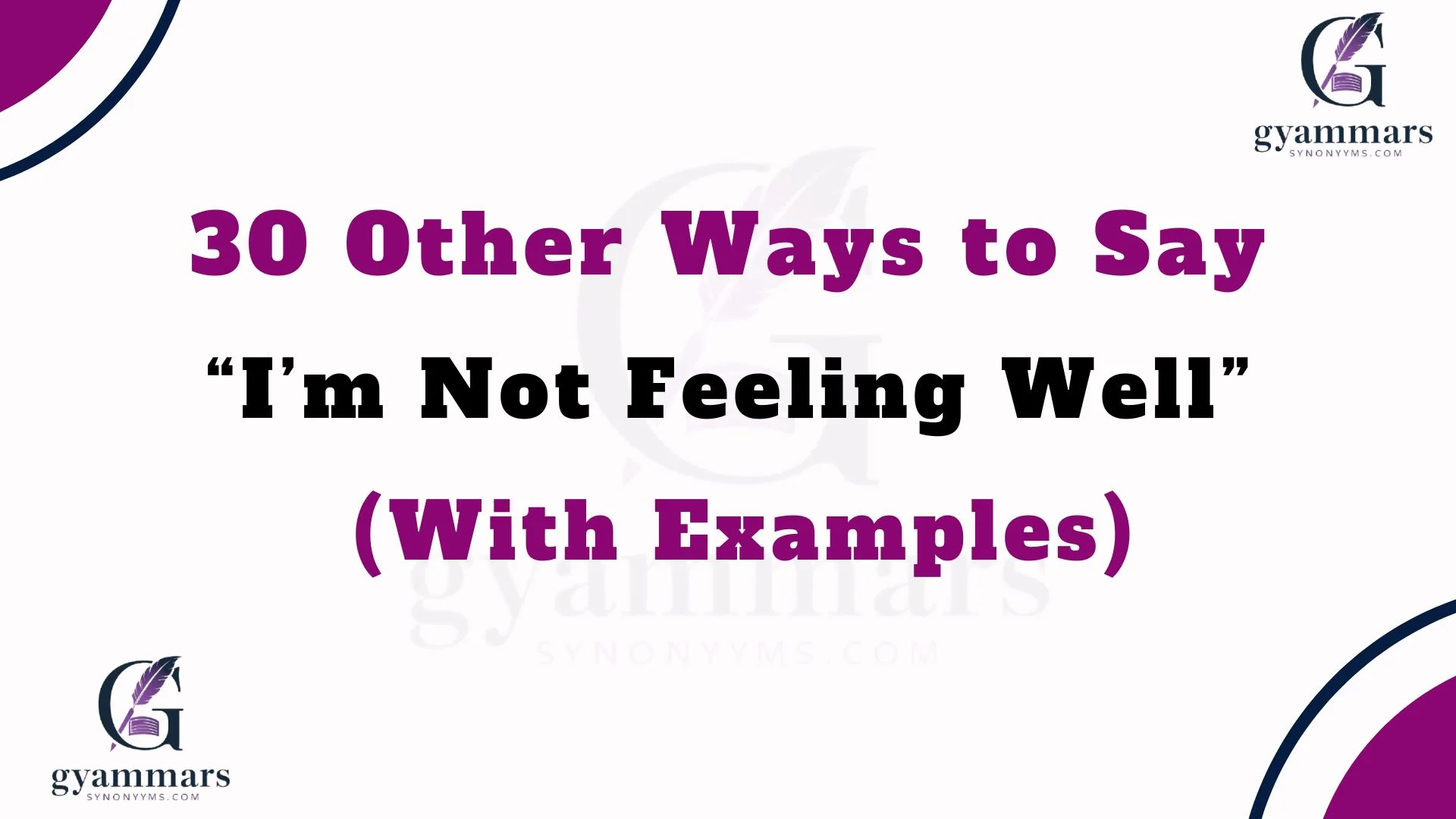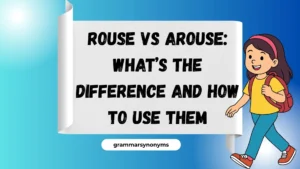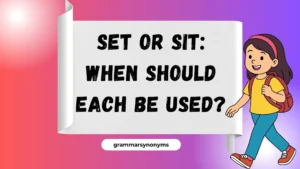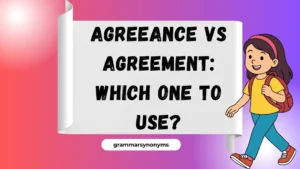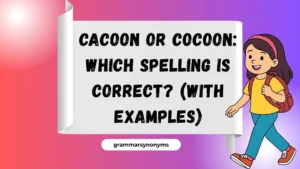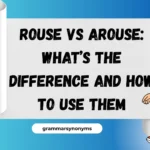Finding the right words to express that you’re not feeling well can make a huge difference in how others respond to you. Whether you’re messaging a colleague, friend, or family member, choosing the right phrasing can make your message sound more personal, respectful, and warm. Instead of simply saying, “I’m not feeling well,” try using these thoughtful alternatives that express your emotions, health, or mood in a more natural and empathetic way.
What Does “I’m Not Feeling Well” Mean?
The phrase “I’m not feeling well” is a gentle and polite way to say that you’re sick, tired, unwell, or emotionally drained. It can refer to both physical and mental discomfort. People often use it to communicate that they’re not at their best, without giving too many details.
Is It Professional or Polite to Say “I’m Not Feeling Well”?
Yes, it’s absolutely professional and polite. In fact, it’s a standard phrase used in workplaces, emails, and text messages. However, the tone and wording should fit your situation. For instance, in a formal email, you might say, “I’m feeling under the weather and may need to take the day off.”
In casual conversations, “I’m not feeling great today” or “I need a little rest” sounds more natural.
Pros and Cons of Saying “I’m Not Feeling Well”
Pros:
- Sounds polite and neutral
- Doesn’t overshare details
- Works in both professional and personal settings
Cons:
- May sound vague or overused
- Doesn’t specify whether it’s physical or emotional discomfort
Synonyms For “I’m Not Feeling Well”
- I’m feeling under the weather
- I’m not at my best today
- I’m feeling a bit off
- I’m not feeling like myself
- I’m feeling drained
- I’m feeling a little off-color
- I think I’m coming down with something
- I’m feeling a bit weak
- I’m a little under the weather
- I’m not feeling great
- I’m feeling a bit low
- I need a mental health day
- I’m feeling sluggish
- I’m feeling burned out
- I’m feeling queasy
- I’m feeling dizzy
- I’m feeling sore
- I’m not feeling up to it
- I’m feeling rough
- I’m feeling out of sorts
- I need to rest
- I’m feeling unwell
- I’m feeling off-balance
- I’m not feeling up to par
- I’m feeling run-down
- I’m feeling off my game
- I’m feeling fatigued
- I’m feeling numb
- I’m not feeling it today
- I’m taking it easy today
1. I’m Feeling Under the Weather
Definition: A common idiom meaning you’re slightly sick or low on energy.
Explanation: Perfect for days when you’re not seriously ill but need to rest.
Example: “I’m feeling a bit under the weather, so I’ll stay home today.”
Best Use: Casual or workplace conversation.
Tone: Mild, polite.
Additional Notes: Avoid in formal writing; best for texts or friendly chats.
2. I’m Not at My Best Today
Definition: Suggests that you’re not operating at full capacity.
Explanation: Good for when you’re still functioning but not feeling 100%.
Example: “I’m not at my best today, but I’ll do my best to get through it.”
Best Use: Workplace or self-aware conversation.
Tone: Honest, composed.
Notes: Keeps things professional without sounding dramatic.
3. I’m Feeling a Bit Off
Definition: Indicates minor discomfort or emotional imbalance.
Explanation: Use when something feels “off” but you can’t pinpoint it.
Example: “I’m feeling a bit off today — maybe I just need rest.”
Best Use: Casual conversation.
Tone: Light, introspective.
Notes: Great for when you want to avoid over-explaining.
4. I’m Not Feeling Like Myself
Definition: Means you’re emotionally or physically unbalanced.
Explanation: Expresses a subtle change in how you usually feel.
Example: “I’m not feeling like myself lately, so I’m taking things slow.”
Best Use: Emotional or mental health context.
Tone: Reflective, sincere.
Notes: Good for expressing vulnerability.
5. I’m Feeling Drained
Definition: Indicates exhaustion or burnout.
Explanation: Can refer to mental or physical fatigue.
Example: “I’m feeling drained after the last few busy days.”
Best Use: Casual or emotional conversation.
Tone: Honest, human.
Notes: Avoid in overly formal emails.
6. I’m Feeling a Little Off-Color
Definition: British expression for feeling slightly unwell.
Explanation: Subtle and polite, good for workplace settings.
Example: “I’m a bit off-color today, so I’ll take it easy.”
Best Use: Formal or polite context.
Tone: Neutral, professional.
Notes: More common in British English.
7. I Think I’m Coming Down With Something
Definition: Suggests you’re starting to get sick.
Explanation: Works when you feel early signs of illness.
Example: “I think I’m coming down with something, so I’ll rest.”
Best Use: Work or family conversation.
Tone: Gentle, responsible.
Notes: Shows consideration for others.
8. I’m Feeling a Bit Weak
Definition: You feel low on strength or energy.
Explanation: Works well when you’re physically exhausted.
Example: “I’m feeling a bit weak today, might skip the gym.”
Best Use: Physical fatigue.
Tone: Simple, calm.
Notes: Easy to understand and empathetic.
9. I’m a Little Under the Weather
Definition: Softer version of “feeling unwell.”
Explanation: Common and polite phrasing.
Example: “I’m a little under the weather, so I’ll take a break.”
Best Use: Workplace or casual.
Tone: Neutral, kind.
Notes: Always sounds polite.
10. I’m Not Feeling Great
Definition: A straightforward, gentle alternative.
Explanation: Works in almost any situation.
Example: “I’m not feeling great today, so I’ll stay home.”
Best Use: Universal.
Tone: Honest, simple.
Notes: Easy and effective.
11. I’m Feeling a Bit Low
Definition: Often used to express sadness or tiredness.
Explanation: Suggests emotional or mental exhaustion.
Example: “I’ve been feeling a bit low these past few days.”
Best Use: Emotional sharing.
Tone: Soft, heartfelt.
Notes: Sensitive phrasing.
12. I Need a Mental Health Day
Definition: You’re taking time to recharge emotionally or mentally.
Explanation: Modern and self-care-oriented.
Example: “I’m taking a mental health day to rest and reset.”
Best Use: Professional, self-care.
Tone: Empowering, open.
Notes: Encourages healthy boundaries.
13. I’m Feeling Sluggish
Definition: Indicates slow energy or tiredness.
Explanation: Ideal for days when you feel unmotivated.
Example: “I’m feeling sluggish today — maybe I need more sleep.”
Best Use: Casual or workplace.
Tone: Light, relatable.
Notes: Friendly and mild tone.
14. I’m Feeling Burned Out
Definition: You’re mentally and emotionally exhausted.
Explanation: Common among professionals or students.
Example: “I’ve been working nonstop — I’m burned out.”
Best Use: Workplace or therapy context.
Tone: Honest, self-aware.
Notes: Encourages self-care.
Also Read This: 30 Other Ways to Say “Keep up The Great Work” (With Examples)
15. I’m Feeling Queasy
Definition: You feel nauseous or uneasy.
Explanation: Specifically used when you feel sick to your stomach.
Example: “I’m feeling queasy, so I’ll pass on dinner.”
Best Use: Physical illness.
Tone: Mild, polite.
Notes: Clear and descriptive.
16. I’m Feeling Dizzy
Definition: You feel lightheaded or unsteady.
Explanation: Useful for explaining temporary unwellness.
Example: “I’m feeling dizzy, I need to sit down for a bit.”
Best Use: Health-related.
Tone: Direct, calm.
Notes: Straightforward and caring.
17. I’m Feeling Sore
Definition: Indicates muscle or body pain.
Explanation: Great for explaining physical strain.
Example: “I’m sore after that workout — might skip the gym.”
Best Use: Physical recovery.
Tone: Neutral, practical.
Notes: Simple and relatable.
18. I’m Not Feeling Up to It
Definition: Means you don’t have the energy or mood to do something.
Explanation: Gentle refusal without sounding rude.
Example: “I’m not feeling up to going out tonight.”
Best Use: Declining invitations.
Tone: Polite, thoughtful.
Notes: Expresses boundaries kindly.
19. I’m Feeling Rough
Definition: You’re feeling very unwell or tired.
Explanation: Informal but expressive.
Example: “I’m feeling rough after that long day.”
Best Use: Casual settings.
Tone: Friendly, honest.
Notes: Avoid in formal communication.
20. I’m Feeling Out of Sorts
Definition: You’re feeling unsettled or unwell.
Explanation: Subtle and old-fashioned, but polite.
Example: “I’m a bit out of sorts today — maybe it’s the weather.”
Best Use: Polite conversation.
Tone: Gentle, traditional.
Notes: Sounds respectful.
21. I Need to Rest
Definition: You need a break or sleep to recover.
Explanation: Direct and simple.
Example: “I need to rest before I can continue working.”
Best Use: All settings.
Tone: Calm, respectful.
Notes: Communicates boundaries clearly.
22. I’m Feeling Unwell
Definition: Polite and professional version of “I’m not feeling well.”
Explanation: Often used in workplaces or formal communication.
Example: “I’m feeling unwell and may not attend the meeting.”
Best Use: Professional or email.
Tone: Formal, polite.
Notes: Safe for all audiences.
23. I’m Feeling Off-Balance
Definition: Suggests emotional or physical imbalance.
Explanation: Subtle and introspective.
Example: “I’ve been feeling off-balance lately; I need some time.”
Best Use: Emotional or reflective talk.
Tone: Thoughtful, calm.
Notes: Gentle phrasing.
24. I’m Not Feeling Up to Par
Definition: You’re not performing at your usual level.
Explanation: Good for professional contexts.
Example: “I’m not feeling up to par today, so I’ll rest.”
Best Use: Workplace communication.
Tone: Polite, neutral.
Notes: Safe for emails or reports.
25. I’m Feeling a Bit Run-Down
Definition: You’re tired and lacking energy from overwork.
Explanation: Often used when you need recovery time.
Example: “I’m feeling run-down after this hectic week.”
Best Use: Casual or professional.
Tone: Honest, balanced.
Notes: Encourages empathy.
26. I’m Feeling Off My Game
Definition: You’re not performing as usual.
Explanation: Ideal for workplace or sports talk.
Example: “I’m off my game today, need a break.”
Best Use: Informal or sports contexts.
Tone: Casual, friendly.
Notes: Modern idiom.
27. I’m Feeling Fatigued
Definition: You’re deeply tired.
Explanation: A medical or formal alternative.
Example: “I’m feeling fatigued — I’ll rest for the day.”
Best Use: Medical or professional.
Tone: Formal, calm.
Notes: Sounds serious but polite.
28. I’m Feeling Numb
Definition: You’re emotionally disconnected.
Explanation: Used when emotions are flat due to stress.
Example: “I’ve been feeling numb lately — I need some quiet time.”
Best Use: Emotional conversation.
Tone: Honest, vulnerable.
Notes: Reflective, not physical.
29. I’m Not Feeling It Today
Definition: You’re not motivated or enthusiastic.
Explanation: Common in casual speech.
Example: “I’m not feeling it today — maybe tomorrow.”
Best Use: Informal.
Tone: Relaxed, modern.
Notes: Avoid in formal emails.
30. I’m Taking It Easy Today
Definition: You’re resting and slowing down.
Explanation: Suggests gentle self-care.
Example: “I’m taking it easy today to recover my energy.”
Best Use: Casual.
Tone: Positive, kind.
Notes: Uplifting tone.
Conclusion
Saying “I’m not feeling well” doesn’t have to sound repetitive or dull. By choosing one of these 30 alternatives, you can express your condition with warmth, clarity, and care. Whether you’re writing to your boss, texting a friend, or setting boundaries, words that reflect your tone and intention help you connect more genuinely.
FAQs
1. What’s the most professional way to say “I’m not feeling well”?
Use “I’m feeling unwell” or “I may need to take the day off due to illness.”
2. Can I say “I’m under the weather” in a formal email?
It’s better suited for casual use. Use “I’m unwell” in formal settings.
3. How do I say “I’m not feeling well” emotionally?
Try “I’m feeling low,” “I’m not myself,” or “I need a mental health day.”
4. What’s a polite way to tell my boss I’m sick?
Say, “I’m feeling unwell and may need rest. I’ll update you if it worsens.”
5. How can I show care when someone else says they’re not feeling well?
Respond with empathy: “Take care of yourself,” or “Let me know if you need anything.”

“Emma Brooke at Grammar Synonyms is your trusted source for mastering the art of language. Whether you’re looking for the perfect synonym, refining your grammar, or searching for that one ideal phrase, we’ve got you covered. With a wealth of tools and resources, Emma Brooke brings you creative solutions for all your writing needs, making sure your words always hit the mark. Unlock a world of language possibilities and elevate your writing with ease.”
